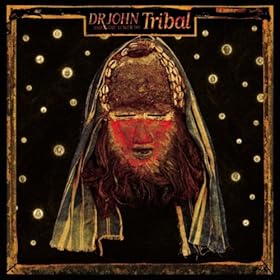 What do Sugarland, Rascal Flatts, Lady Antebellum, Taylor Swift, and Carrie Underwood have in common? They're all impostors. Somehow these folks, and many many others, slowly and quietly infiltrated our radio stations and took over the airwaves. It's an invasion that's taken decades, but they've finally conquered, and the world is theirs.
What do Sugarland, Rascal Flatts, Lady Antebellum, Taylor Swift, and Carrie Underwood have in common? They're all impostors. Somehow these folks, and many many others, slowly and quietly infiltrated our radio stations and took over the airwaves. It's an invasion that's taken decades, but they've finally conquered, and the world is theirs.The internet is rife with websites and forums devoted to uncovering the mystical secret behind “why country music sucks”. Unfortunately, most people who put down modern mainstream country music end up sounding like old men unwilling to accept change, who only listen to Hank Williams, and who only consider a song 'country' if a wailing steel guitar can be heard behind a southern accent singing about beer, women, and trucks.
Well I'm not a closed-minded country fan. I do like Hank Williams, but I also like a plethora of other singers, bands, and genres. I listen to classical music, swing, country, rock 'n' roll, hard rock, soft rock, indie rock, folk, bluegrass, blues, jazz, and the list goes on and on. One thing I cannot put up with, however, is fake music with fake emotions sung by fake people who neither wrote their own music nor their own lyrics, and rarely even play the instruments on their own albums.
When someone writes a song, they are calling upon their own experiences and their own feelings. When they perform that song, they know exactly how they feel. One of the biggest problems with bands who don't have anything to do with the creative process is that they're singing and playing someone else's thoughts and feelings, and 99% of the time, it is incredibly apparent. Watch them as they squint their eyes, and lift their hands in the air or place it over their heart just to try and portray some emotion to the audience that they're really not feeling at all. It's pathetic.
Country music has become a new form of karaoke; the kind where people with little talent can take over the radio, push real country into the underground scene where few people ever hear it, and make millions of dollars simply because their music is backed by massive marketing campaigns. Part of their advertising campaign, by the way, includes their songs being played on the radio twenty-five times a day, where the D.J. is paid to praise their 'new single' or to encourage us all to check out this 'amazing up-and-coming new band'. Repetition is their friend; it makes us buy into their hype, and in turn buy their albums.
I'm not going to take a stab at people who do enjoy mainstream country radio. It's not my position to tell others what to like. If you are a fan of mainstream country, please just do one thing for me; admit that it isn't country. Go ahead and enjoy it, as long as you can admit that what you're listening to is pop music, and that 99% of it has no business being aired on a country radio station.
Article first published as Invasion of the Music Snatchers: Mainstream Country Music on Blogcritics.

